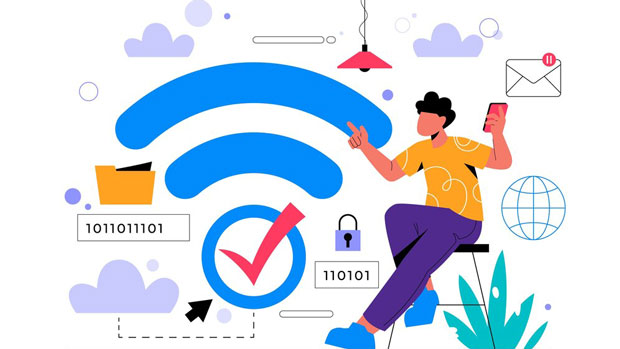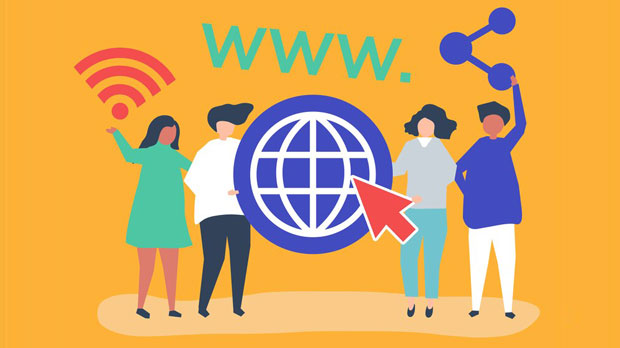Unlimited bandwidth residential ip proxies are becoming an essential tool for many internet users, offering the advantage of bypassing restrictions, enhancing privacy, and ensuring smoother online operations. These proxies route internet traffic through real residential IPs, making them more trustworthy in the eyes of websites compared to traditional datacenter proxies. But who exactly can benefit from using these proxies? In this article, we will explore the individuals and businesses that can gain significant advantages from utilizing unlimited bandwidth residential IP proxies. Understanding Unlimited Bandwidth Residential IP ProxiesUnlimited bandwidth residential IP proxies are essentially a network of real IP addresses assigned to individual residential homes or devices. These proxies mask the user's original IP address by rerouting traffic through these residential IPs. With unlimited bandwidth, users can access the internet without worrying about data limitations, making it perfect for high-demand use cases such as scraping, ad verification, or accessing geo-restricted content.These proxies offer various benefits, such as the ability to make requests that appear more legitimate to websites and services. This makes them especially useful for avoiding blocks or detection when browsing the web, conducting market research, or automating tasks that require high-frequency requests. By using residential IP addresses, users can mimic human behavior, which helps in ensuring smooth access to resources while maintaining anonymity.Who Benefits from Unlimited Bandwidth Residential IP Proxies?Now that we understand what unlimited bandwidth residential IP proxies are, let’s dive into who exactly can benefit from them. Below are the key groups of people and businesses that rely on these proxies:1. Businesses Engaged in Web ScrapingWeb scraping is an essential technique for businesses that need to gather large volumes of data from different websites. Whether it’s for competitive analysis, price monitoring, or market research, scraping requires consistent, uninterrupted access to target websites.Unlimited bandwidth residential IP proxies provide these businesses with the ability to scrape data without encountering frequent blocks or IP bans. Since the proxies are tied to real residential addresses, websites are less likely to identify and block requests as automated scraping attempts. These proxies ensure that companies can continue gathering data smoothly, making them invaluable for businesses that rely on this type of web activity.2. E-commerce and Online RetailersFor e-commerce businesses, staying ahead of competitors means constantly monitoring competitor prices, product availability, and promotions. Unlimited bandwidth residential IP proxies offer a way to collect real-time data from competitor websites while avoiding detection. Additionally, they allow businesses to access global pricing and stock information, ensuring they can offer competitive prices without being blocked by other retailers.Furthermore, these proxies are useful for ad verification, ensuring that digital advertisements appear as intended across different regions and platforms. By using residential proxies, e-commerce businesses can make sure that their marketing efforts are visible and accurate, helping to optimize their campaigns and improve ROI.3. Digital Marketers and SEO ProfessionalsDigital marketers and SEO professionals can benefit greatly from unlimited bandwidth residential IP proxies. These individuals often need to perform keyword research, analyze search engine results, or test websites across different geographic locations. Residential proxies make it easier to avoid detection when performing these tasks.Using residential IP proxies helps digital marketers conduct A/B testing, check how ads are displayed in various regions, and track competitors' websites. It allows them to see their own site’s rankings in different locations, simulate local searches, and verify if their SEO efforts are reaching the intended audience. This is critical for those who rely on accurate data to develop effective digital marketing strategies.4. Online GamersOnline gamers, particularly those involved in competitive gaming or looking to access region-locked content, often face challenges related to geo-blocking. Unlimited bandwidth residential IP proxies help gamers bypass geographic restrictions and access gaming servers in different regions. This can be essential for players who want to access exclusive content, download game updates, or participate in global tournaments.Additionally, residential proxies can be used to avoid throttling by internet service providers (ISPs). With an unlimited bandwidth plan, gamers can enjoy a smooth and uninterrupted gaming experience without worrying about data limits or lag caused by throttling.5. Privacy-Conscious IndividualsFor individuals who prioritize privacy and anonymity online, unlimited bandwidth residential IP proxies offer a powerful solution. These proxies mask a user’s real IP address, making it difficult for websites to track their online activities. By using residential IP addresses, which are tied to actual households, users can maintain their privacy and avoid the risks associated with using regular public or datacenter IPs.This is particularly beneficial for individuals who want to browse the internet without being monitored by advertisers, data brokers, or even government agencies. With unlimited bandwidth, users can surf the web freely, knowing that their identity is protected.6. Social Media ManagersSocial media managers and influencers often manage multiple accounts on different platforms. This requires accessing and managing these accounts from different locations, often simultaneously. Residential proxies make it easier for social media managers to bypass IP restrictions, avoid account bans, and automate tasks like posting, liking, or following without triggering platform algorithms that detect suspicious activities.Unlimited bandwidth residential IP proxies ensure that social media managers can carry out their tasks smoothly, without worrying about hitting limits or facing penalties. This is particularly crucial for those managing large campaigns, monitoring online trends, or working with multiple clients.7. Web Developers and TestersWeb developers and testers frequently need to simulate real-world browsing conditions to ensure that websites function properly across different locations and devices. Unlimited bandwidth residential IP proxies enable them to perform extensive tests on their websites or apps from different geographic regions, ensuring that everything works as expected for users worldwide.With the ability to rotate IP addresses and simulate various user locations, developers can test their applications in diverse conditions, identify issues related to geo-blocking, and optimize their websites for a global audience.In conclusion, unlimited bandwidth residential IP proxies offer significant advantages for various groups of users, including businesses, digital marketers, online gamers, privacy-conscious individuals, social media managers, and web developers. These proxies help users perform tasks with higher efficiency, avoid detection, and access the internet in a more seamless and secure manner.By providing real residential IP addresses, these proxies ensure that users can avoid blocks, restrictions, and throttling, making them ideal for high-demand, high-frequency online activities. Whether it’s for market research, accessing geo-restricted content, or ensuring privacy, unlimited bandwidth residential IP proxies are a versatile and powerful tool for those who need to optimize their online experience.
Apr 25, 2025



































































